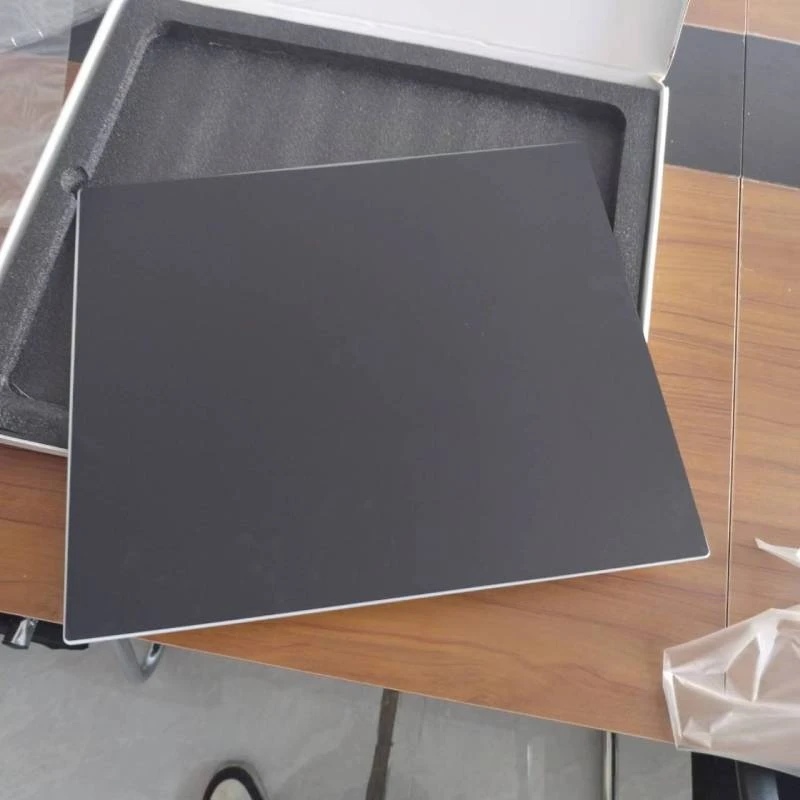Understanding Opaque Laminated Glass A Unique Architectural Solution
Opaque laminated glass has been gaining popularity in modern architecture, offering a unique combination of aesthetics, functionality, and safety. This innovative material serves various purposes, from enhancing privacy to improving energy efficiency. In this article, we will explore the characteristics, benefits, applications, and maintenance of opaque laminated glass, providing a comprehensive overview of this versatile building material.
What is Opaque Laminated Glass?
Opaque laminated glass consists of two or more layers of glass bonded together with a transparent interlayer, usually made of polyvinyl butyral (PVB) or ethylene-vinyl acetate (EVA). The key feature of opaque laminated glass is its ability to restrict visibility while allowing natural light to filter through. This is achieved through the use of a special coating or tint within the interlayer, rendering the glass non-transparent.
The lamination process not only results in opaque glass but also enhances safety and durability. In the event of breakage, the interlayer holds the shards of glass together, reducing the risk of injury and property damage. This makes laminated glass an ideal choice for both commercial and residential applications.
Benefits of Opaque Laminated Glass
1. Privacy One of the most significant advantages of opaque laminated glass is its ability to provide privacy. It is an ideal solution for spaces like restrooms, conference rooms, and healthcare facilities where confidentiality is paramount. The opaque finish ensures that occupants can conduct their activities without being observed from the outside, creating a comfortable and secure environment.
2. Safety and Security The laminated structure of this glass adds a level of strength that standard glass lacks. In addition to preventing injuries from shattered glass, opaque laminated glass also acts as a deterrent to break-ins. Its robust construction makes it a popular choice for stores, offices, and homes where security is a priority.
3. UV Protection Opaque laminated glass provides excellent protection against harmful ultraviolet (UV) rays, reducing the potential for skin damage and fading of furniture and artwork. This feature is particularly beneficial in spaces where people spend long periods, such as offices or art galleries.
4. Energy Efficiency By incorporating special coatings and interlayers, opaque laminated glass can contribute to energy efficiency in buildings. It can help maintain a consistent indoor temperature by reducing heat transfer, thereby lowering energy costs. Additionally, it can minimize glare from sunlight, enhancing comfort for occupants.
opaque laminated glass
5. Aesthetic Appeal The contemporary look of opaque laminated glass can elevate the overall design of any building. Its sleek and modern finish can complement various architectural styles, making it suitable for both interior and exterior applications. The ability to customize the color and opacity level allows architects and designers to create unique visual effects, enhancing the curb appeal of a property.
Applications of Opaque Laminated Glass
Opaque laminated glass finds applications across various sectors. In commercial architecture, it is commonly used in office partitions, storefronts, and facades. The glass can create visually striking entrances while maintaining privacy for employees inside.
In residential settings, opaque laminated glass is often utilized for bathroom windows, balcony railings, and interior doors, where discretion is desired without sacrificing natural light. It can also be employed in creative landscaping, such as garden walls or decorative panels, adding a modern touch to outdoor spaces.
Moreover, in the transportation industry, opaque laminated glass is used in vehicles to provide safety and thermal insulation. Its lightweight nature and enhanced strength make it an ideal choice for automotive design.
Maintenance of Opaque Laminated Glass
Maintaining opaque laminated glass is straightforward. Regular cleaning with a soft cloth and mild glass cleaner will help to maintain its appearance. It is important to avoid abrasive cleaners or materials that could scratch the surface. Inspecting the glass periodically for any signs of damage or delamination is also recommended to ensure lasting performance and safety.
Conclusion
Opaque laminated glass is a remarkable architectural material that combines aesthetic appeal with functionality and safety. As its applications continue to expand across various sectors, more designers and builders are recognizing its potential to create beautiful, secure, and energy-efficient spaces. By integrating opaque laminated glass into their projects, architects can offer innovative solutions that meet the needs of modern living while enhancing the beauty of their designs. Its versatility and advantages make it a valuable addition to any architectural toolkit.
 Afrikaans
Afrikaans  Albanian
Albanian  Amharic
Amharic  Arabic
Arabic  Armenian
Armenian  Azerbaijani
Azerbaijani  Basque
Basque  Belarusian
Belarusian  Bengali
Bengali  Bosnian
Bosnian  Bulgarian
Bulgarian  Catalan
Catalan  Cebuano
Cebuano  Corsican
Corsican  Croatian
Croatian  Czech
Czech  Danish
Danish  Dutch
Dutch  English
English  Esperanto
Esperanto  Estonian
Estonian  Finnish
Finnish  French
French  Frisian
Frisian  Galician
Galician  Georgian
Georgian  German
German  Greek
Greek  Gujarati
Gujarati  Haitian Creole
Haitian Creole  hausa
hausa  hawaiian
hawaiian  Hebrew
Hebrew  Hindi
Hindi  Miao
Miao  Hungarian
Hungarian  Icelandic
Icelandic  igbo
igbo  Indonesian
Indonesian  irish
irish  Italian
Italian  Japanese
Japanese  Javanese
Javanese  Kannada
Kannada  kazakh
kazakh  Khmer
Khmer  Rwandese
Rwandese  Korean
Korean  Kurdish
Kurdish  Kyrgyz
Kyrgyz  Lao
Lao  Latin
Latin  Latvian
Latvian  Lithuanian
Lithuanian  Luxembourgish
Luxembourgish  Macedonian
Macedonian  Malgashi
Malgashi  Malay
Malay  Malayalam
Malayalam  Maltese
Maltese  Maori
Maori  Marathi
Marathi  Mongolian
Mongolian  Myanmar
Myanmar  Nepali
Nepali  Norwegian
Norwegian  Norwegian
Norwegian  Occitan
Occitan  Pashto
Pashto  Persian
Persian  Polish
Polish  Portuguese
Portuguese  Punjabi
Punjabi  Romanian
Romanian  Russian
Russian  Samoan
Samoan  Scottish Gaelic
Scottish Gaelic  Serbian
Serbian  Sesotho
Sesotho  Shona
Shona  Sindhi
Sindhi  Sinhala
Sinhala  Slovak
Slovak  Slovenian
Slovenian  Somali
Somali  Spanish
Spanish  Sundanese
Sundanese  Swahili
Swahili  Swedish
Swedish  Tagalog
Tagalog  Tajik
Tajik  Tamil
Tamil  Tatar
Tatar  Telugu
Telugu  Thai
Thai  Turkish
Turkish  Turkmen
Turkmen  Ukrainian
Ukrainian  Urdu
Urdu  Uighur
Uighur  Uzbek
Uzbek  Vietnamese
Vietnamese  Welsh
Welsh  Bantu
Bantu  Yiddish
Yiddish  Yoruba
Yoruba  Zulu
Zulu 

